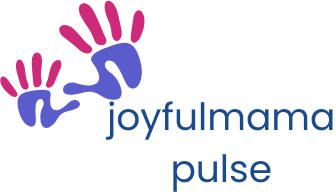Table of Contents
ToggleNavigating the wild world of parenting can feel like trying to assemble IKEA furniture without the instructions. With so many parenting models out there, it’s easy to get lost in the chaos. From authoritative to permissive, each approach has its quirks and perks, making the journey both amusing and bewildering.
Overview of Parenting Models
Parenting models define how caregivers approach raising children. These frameworks outline strategies and behaviors that can impact child development.
Authoritative parenting combines warmth and structure. With this model, parents set clear expectations while nurturing independence. Research shows this approach often leads to children with high self-esteem and strong social skills.
Permissive parenting emphasizes warmth but lacks boundaries. Parents adopting this style are more lenient, leading to children who may struggle with authority and self-discipline. Studies indicate permissive parenting might result in difficulties with impulse control in children.
Authoritarian parenting, in contrast, stresses obedience and discipline. This model features high demands and low responsiveness, which can hinder emotional growth. Children raised under authoritarian principles often exhibit lower self-esteem and higher rates of anxiety.
Uninvolved parenting reflects a lack of responsiveness and demands. Parents may neglect their children’s needs, resulting in various negative outcomes, including emotional and behavioral issues. Data highlights that uninvolved children typically perform poorly in academic settings.
Each model offers insights into the parenting journey. Understanding these approaches helps caregivers reflect on their methods and adapt their strategies for better outcomes. In transitioning from one model to another, parents can tailor their approaches to better meet the changing needs of their children.
Authoritarian Parenting Model

The authoritarian parenting model emphasizes strict rules and high demands, often prioritizing obedience over emotional connection. This approach typically features a top-down form of discipline.
Characteristics
Control defines authoritarian parenting. Parents assert rules without input from children. Communication often occurs in one direction: from parent to child. Children experience high expectations regarding behavior and academic performance. Emotional responsiveness remains limited, as affection might be less evident. Freedom for personal expression becomes restricted, leading children to feel they cannot voice their opinions or desires.
Effects on Children
Children raised in authoritarian environments frequently display lower self-esteem. Anxiety levels often rise, contributing to social withdrawal. Academic performance may also decline due to the pressure to meet high expectations. These children might struggle with decision-making and lack autonomy. Independence becomes a challenge, as they’re accustomed to adhering to strict guidelines rather than exploring their own choices. Emotional regulation tends to suffer, influencing their relationships in later life.
Authoritative Parenting Model
This model is known for its balance of warmth and strictness. It emphasizes nurturing while setting clear expectations.
Characteristics
Respect defines the authoritative parenting approach. Parents encourage open communication and value children’s opinions. Structure plays a significant role; rules and consequences are clear and consistent. Support and guidance foster independence, allowing children to explore their interests. Flexibility remains important, enabling parents to adapt their strategies as situations change. Empathy helps parents understand and respond to their children’s emotional needs effectively.
Benefits for Development
Children raised in authoritative households typically exhibit high self-esteem. Strong social skills often develop, allowing them to form healthy relationships. Academic performance frequently improves, with children displaying motivation and discipline. Problem-solving abilities are enhanced, as parents encourage critical thinking. Emotional regulation skills also flourish, promoting resilience in stressful situations. Ultimately, this parenting model nurtures well-rounded individuals ready to navigate life’s challenges.
Permissive Parenting Model
Permissive parenting centers on warmth and acceptance rather than structure. Parents in this model often act more as friends than authority figures.
Characteristics
A lack of rules defines permissive parenting, where parents prioritize emotional support over discipline. This model features high responsiveness to children’s needs yet minimal demands for behavior. Parents refrain from enforcing strict rules or expectations, leading to a casual atmosphere at home. Independence is encouraged, but boundaries remain vague. Communication tends to be open, allowing children to express themselves freely. As such, this model can be nurturing but may provide little guidance on acceptable behavior.
Consequences for Behavior
Children from permissive households frequently exhibit a range of behavioral challenges. Struggles with authority often arise, as these children expect freedom without restrictions. Self-discipline can become an issue, leading to difficulties in managing responsibilities. Research indicates a correlation between permissive parenting and impulsive behavior, as children may lack crucial self-regulation skills. Additionally, they might face challenges in social interactions when confronted with rules or authority figures. Emotional fluctuations can occur due to unmet expectations in less structured environments.
Uninvolved Parenting Model
The uninvolved parenting model, also known as neglectful parenting, emphasizes limited engagement from parents in their children’s lives. Characteristics of this model often lead to minimal emotional and behavioral guidance.
Characteristics
Parents practicing uninvolved parenting typically provide little to no attention or support. Often, they neglect basic needs, including supervision and emotional connection. Children rarely receive feedback on their behaviors, which creates an unpredictable environment. Parents engage minimally in their children’s activities, leading to a sense of isolation. Independence is prevalent, but children may lack direction, resulting in unclear expectations. In this model, discipline is virtually absent, and communication remains infrequent, significantly affecting children’s overall development.
Impact on Emotional Growth
Emotional growth in children raised under uninvolved parenting faces considerable challenges. These children often develop low self-esteem due to the lack of parental affirmation. They struggle with emotional regulation, which can lead to anxiety and behavioral issues. Many lack essential social skills because their interactions with peers often reflect the neglect they experienced at home. Research indicates that such environmental absence can hinder children’s ability to form healthy relationships in the future. Additionally, feelings of unworthiness may result from the emotional unavailability of parents, affecting their overall well-being throughout life.
Navigating the world of parenting requires awareness of various models and their impacts on children’s development. Each model presents unique advantages and challenges that can shape a child’s emotional and social skills. By understanding these approaches caregivers can make informed decisions that align with their values and their children’s needs.
Embracing a balanced strategy often leads to healthier outcomes for children. As they grow and change caregivers can adapt their methods to foster resilience and independence. Ultimately the goal is to nurture confident individuals prepared to tackle life’s challenges with empathy and self-awareness.





